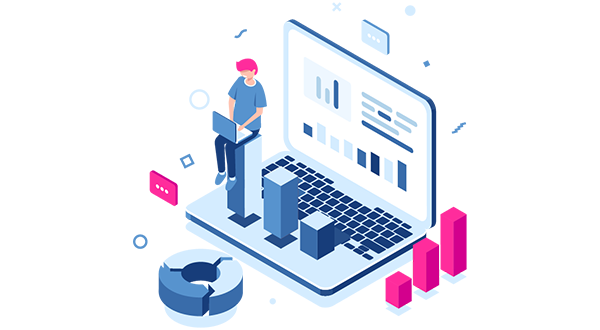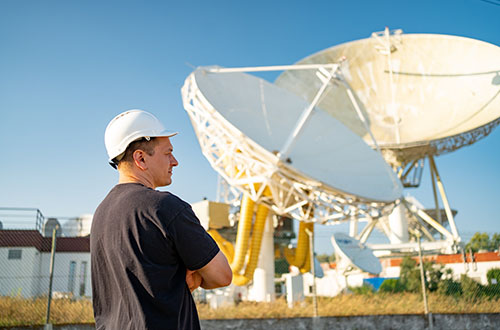

mLogica Thought Leaders: The Time- and Money-Saving Impact of Generative AI on Database Migration

Atul Sharma, mLogica Senior Director of Distributed Modernization
Generative AI (artificial intelligence), or GenAI, is the next game-changer in the enterprise solutions market, particularly in the case of database migrations. As more businesses move from their end-of-life legacy environments to modern database systems, they’re finding they can leverage GenAI to ensure maximum efficiency, flexibility and accuracy.
GenAI’s benefits include:
Improved Schema Mapping
Algorithms using GenAI are optimal for analyzing data relationships and their intricate structures. Using deep learning models, these algorithms can “understand” the source schemas and the relationship between existing data to intelligently construct mappings to target schemas.
This automated mapping and transformation helps create not just accurate, but optimized schemas for target databases. Using this automated database migration approach, organizations can minimize the risk of data discrepancies while dramatically cutting timelines.
Pre-joining data is another way GenAI facilitates schema mapping; it foresees scenarios in which tables may be pre-joined in data warehousing, merging data from many tables into a single structure. By simplifying complex queries, accelerating schema mapping, increasing performance and supporting error-free reporting and analysis, GenAI streamlines the entire database modernization process.
Faster, More Accurate Code Translation and Optimization
Accurate code translation, or refactoring, is a critical component of database modernization. A seamless migration requires error-free refactoring to create high-quality code that’s fully compatible with the target platform.
GenAI uses artificial intelligence to “learn” all the intricacies of the source code, enabling database migration tools to quickly and consistently translate it to the target language without impacting the code base. This process also optimizes the code for enhanced performance on the new platform.
A key use case for GenAI is to help automated migration technology solutions, such as mLogica’s LIBER*M Mainframe Modernization Suite and STAR*M Distributed Workload Modernization software, translate critical stored procedures and functions. Database-specific languages create a variety of challenges in database schemas, issues that become increasingly complex during a migration. But since GenAI is trained on massive code libraries, it can effectively translate these stored procedures and functions for deployment in the target environment, automating what was previously a painstaking, error-prone manual process.
Streamlined Testing and Validation
While manual work is still essential in comprehensive testing protocols, GenAI helps accelerate this process, enabling migration teams to generate test cases and validate functionality equivalence, performance benchmarking and data integrity on the target platform. For example, GenAI can automate the generation and execution of test cases for procedures, queries and views based on underlying logic.
To test a procedure, users provide GenAI with arguments that serve as inputs and the system executes an arbitrary set of logic, potentially modifying the database or data. GenAI is also instrumental in constructing relevant arguments and ensuring the comprehensive application of procedure logic to avoid redundant tests.
Thus, if a procedure contains a condition such as "if X is greater than 0", GenAI generates test cases in which X is set to 1, and others in which X is set to less than or equal to 0, validating both true and false scenarios. Users can then compare the results on both the source and target platforms, validating their accuracy by examining tables on both sides to ensure information and values are consistent on every cell. A perfect match indicates a bug-free system, while discrepancies signal potential issues. By significantly reducing the manual work required for testing and validation, GenAI enables teams to produce high-quality releases and migrate faster to the target platform.
AI-powered Performance Optimization
Assessing the legacy system’s functionality is a complex task, but vital to improving performance post-migration. GenAI allows queries and database design to be optimized to reduce latency, increase query performance and accelerate response time on the target platform.
GenAI also allows database migration tools to optimize performance on modern database systems by analyzing the rate at which queries are being executed and the impact on database tables. It analyzes which tables are being affected, along with their volumes. The resulting data then determines the amount of work required for different tables and different structures.
GenAI also allows migration teams to generate a highly efficient model schema that will meet the organization’s individual requirements by identifying any opportunities for optimization based on current usage patterns. For example, teams can reduce the number of tables by examining the relationships between pre-joined tables, materialized views or just simple tables—even dividing them into hot or cold tables or adding indexes to enhance access speed. In addition, GenAI can indicate the need to add an index to enhance performance for queries that are frequently read, while indexes that are read less often can be removed if they’re consuming too many resources.
Runtime costs can be cut by joining tables that return the same data every time a query is run, and database efficiency can be enhanced by merging tables with designated relationships to decrease runtime joins. Such strategies ensure only key data is maintained, minimizing resource usage and execution load on the database for optimal performance on the target platform.
The Benefits of GenAI in Database Migration Are Undeniable
Database migration tools are being transformed by the application of generative AI, which offers a more efficient approach to optimizing workflows, enhancing precision and adapting to changing patterns. In an age of digital transformation, GenAI has become an invaluable tool for database modernization, from code translation to schema mapping, testing and validation and data quality assurance.








































